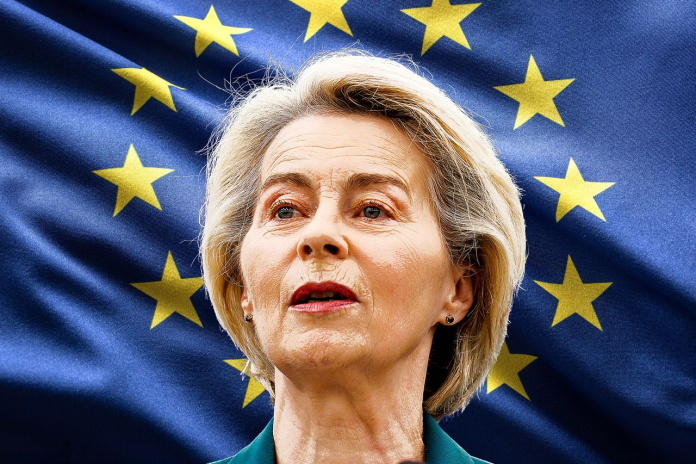European Commission President Ursula von der Leyen’s declaration that a Finnish protester was “fortunate” to live in a democracy where free speech flourished proved tragically ironic when security forces forcibly removed the man within seconds of his dissent.
The incident, captured on video and circulating widely across European media, ignited fierce debate over the bloc’s commitment to civil liberties amid a widening pattern of speech suppression.
During von der Leyen’s public appearance in Finland this week, one of the participants shouted critical remarks about restrictions on freedom of speech.
“And first of all, to those who scream and yell here so loud: they can be happy that they are in a free country like Finland, where the free speech is a right where they have not any restrictions,” von der Leyen said as Finnish police physically detained a protester and removed him from the event venue within 15 seconds, in front of stunned spectators.
This spectacle unfolded against von der Leyen’s Strasbourg rhetoric in July, framing global politics as “an age of struggle between democracy and illiberalism,” where alleged extremist parties are fuelled by conspiracies. Meanwhile, her administration faces mounting accusations of embracing the very illiberal tactics she publicly denounces, particularly toward political dissent.
Democracy’s double standard: arrests, laws, and “lack of clarity”
The latest detention is not isolated. Across Europe, authorities increasingly weaponise ambiguous legal frameworks to criminalise expression. British police now make over 30 arrests daily for “offensive” online communications under laws criminalising messages causing “annoyance”, “inconvenience”, or “anxiety,” resulting in 12,000 arrests in 2023 alone. Most cases never yield convictions, yet individuals endure detention and reputational damage.
Turkish authorities arrested youth delegate Enes Hocaoğulları on 4 August for statements made during a Council of Europe Congress session.
Congress President Marc Cools condemned it as an assault on “the fundamental right to free expression – a cornerstone of democracy in Europe” and “unacceptable, direct reprisals against an individual for their legitimate participation in the work of the Council of Europe.”
In April, pro-Palestinian activist Mohammed Khatib’s arrest in Brussels under ambiguous “foreign agents” laws, alongside expulsions of protesters in Germany, highlights how vaguely defined legislation enables political repression. As MEP Giorgos Georgiou warned, such laws’ “lack of clarity” threatens artistic and academic freedom.
Von der Leyen’s own Commission faces allegations of opacity, notably her refusal to release text messages exchanged with Pfizer’s CEO during COVID-19 vaccine negotiations, a stance condemned as “maladministration” by watchdogs and the EU’s highest court.
This context fuelled last month’s censure motion against her, spearheaded by MEPs accusing the Commission of “opaque” and “discretionary” decision-making.
Though von der Leyen survived July’s censure vote (175 for, 360 against), the motion exposed profound disillusionment. Socialist leader Iratxe García Pérez, whose bloc reluctantly backed von der Leyen, warned of her alarming shift toward “far-right pledges,” citing her European People’s Party (EPP) collaboration with factions to block an EU ethics body and dilute environmental reforms.
